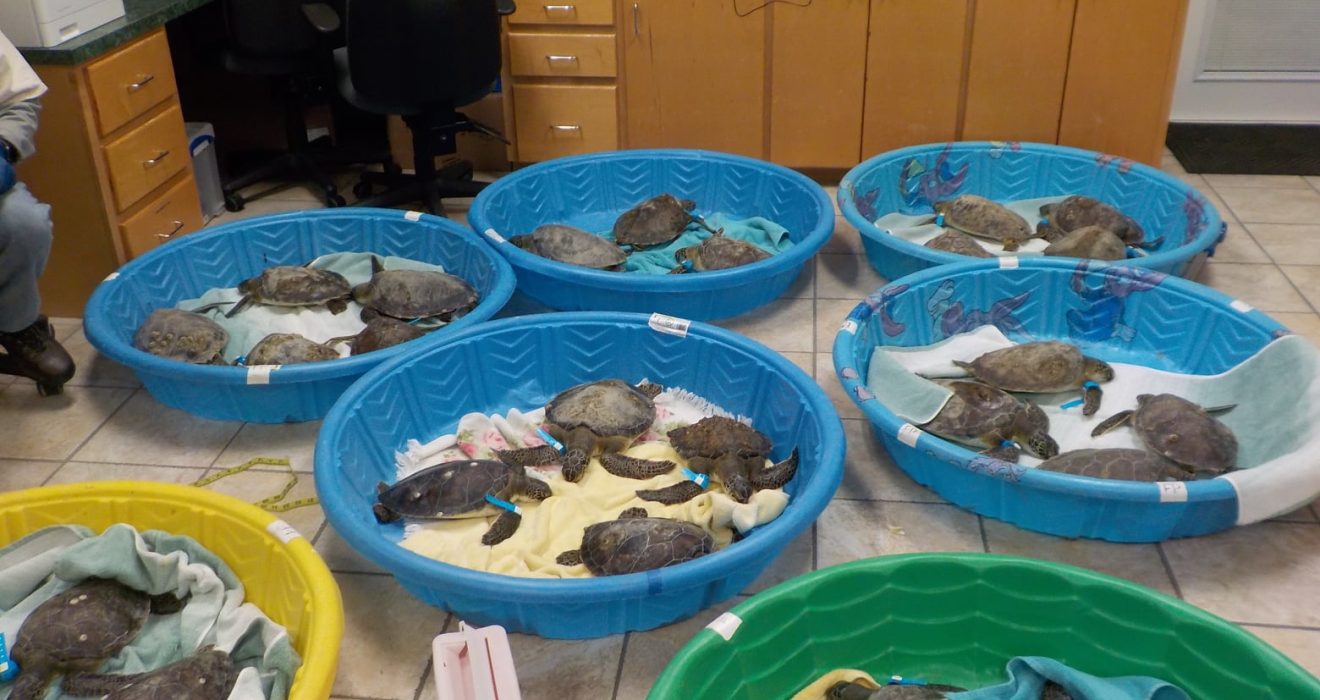Dozens of critically endangered sea turtles have been rescued and reintroduced into the wild following months of dedicated rehabilitation. The susceptibility of these marine creatures to cold-stunning events becomes a pronounced threat to their existence, as demonstrated by recent rescue endeavors in Cape Cod. The pivotal intervention of Mass Audubon’s Wellfleet Bay Wildlife Sanctuary became evident as they played a vital role in the salvation of 24 turtles during a cold-stunning episode that unfolded from November 2022 to January 2023.
These rescued turtles, teetering on the brink of secondary health complications or even mortality without prompt attention, have now experienced a triumphant return to their natural habitat. The successful rehabilitation and release underscore the crucial role of organizations like Mass Audubon in safeguarding the well-being of these vulnerable sea turtles, offering a glimmer of hope for their sustained survival in the face of environmental challenges.
Sea Turtles’ Struggle with Cold-Stunning
Sea turtles, despite the protective armor of their shells, grapple with distinctive challenges owing to their inability to regulate body temperatures akin to mammals. The perilous condition of cold-stunning manifests when water temperatures plunge below 50°F, causing the turtles to become lethargic and rendering them incapable of swimming. This phenomenon poses a substantial threat to not only individual turtles but also to entire populations, potentially numbering in the hundreds or even thousands. It is not confined solely to Cape Cod; other locations susceptible to such events encompass Long Island Sound, Pamlico Sound in North Carolina, and various areas in Florida and Texas. The widespread occurrence of cold-stunning underscores the urgency of comprehensive conservation efforts to safeguard these remarkable marine creatures from the perils they face in diverse environments.
Mass Audubon’s Role in Turtle Rescues
Mass Audubon’s Wellfleet Bay Wildlife Sanctuary emerges as a beacon of hope during cold-stunning events, mobilizing over 170 trained volunteers for twice-daily beach patrols. These dedicated individuals’ brave uncomfortable conditions, sometimes in the middle of the night, to rescue stranded turtles. In the 2022 season, their efforts resulted in a remarkable 70% of retrieved sea turtles being alive. Once rescued, the turtles undergo processing at the Sanctuary before being transported to the New England Aquarium for rehabilitation.
Rehabilitation Journey at the New England Aquarium
The 24 rescued turtles, including 23 critically endangered Kemp’s ridley turtles and one green sea turtle, found refuge at the New England Aquarium’s Sea Turtle Hospital in Quincy, Massachusetts. Months of intensive treatment addressed various ailments, from pneumonia and dehydration to bone fractures. The success of their rehabilitation marked a significant milestone, prompting the next phase of their journey – release back into the ocean.
Transporting Turtles to North Carolina Waters
The conclusion of the rehabilitation journey marked the turtles’ relocation to the balmy springtime waters of Fort Fisher, North Carolina. Guided by biologists from the Aquarium, the meticulous process involved climate-controlled transport to guarantee a smooth acclimation for the turtles. Adam Kennedy, Director of Rescue and Rehabilitation, conveyed the profound joy associated with the turtles’ homecoming to the ocean. He underscored the collective hope harbored for the recovery of their endangered populations. The strategic choice of Fort Fisher, North Carolina, with its temperate waters, not only facilitated the turtles’ transition but also symbolized a pivotal step towards revitalizing and sustaining these remarkable marine species. It is a testament to the collaborative efforts dedicated to ensuring the well-being and resurgence of sea turtles in their natural habitat.

